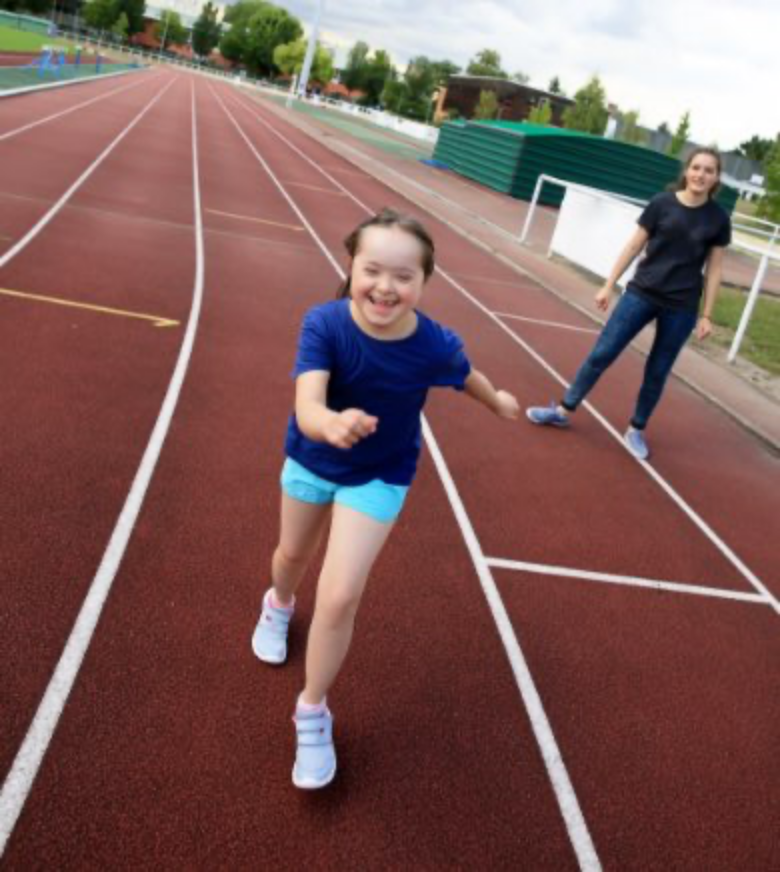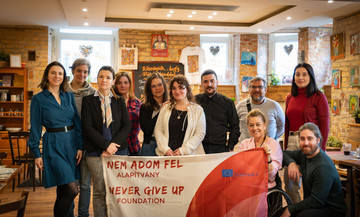all across Europe
European Association of Service providers for Persons with Disabilities
1
EASPD is the European Association of Service providers for Persons with Disabilities and represents over 20,000 support services for persons with disabilities across Europe.
2
We promote equal opportunities for people with disabilities through effective and high-quality service systems.

Key areas of work
When done right, quality care and support enables people to live independently, in the community, to make choices, and to have control over their lives.
James Crowe, EASPD President
ECI Greece project awareness-raising workshop: family-centred Early Childhood Intervention
Join us for the first awareness-raising workshop of the ECI Greece project organised by EASPD in partnership with the Ministry of Social Cohesion and Family Affairs, and the European Commission’s Directorate-General for Structural Reform Support on 8 December from 18:00 to 19:30 Greek time.
Event overview
Participants will learn about the importance of Early Childhood Intervention and discuss why a family-centred approach is effective in supporting children and families in need and the best way to implement this process. Project partners will also share information on the state of play of ECI in Greece, and the resources that they are developing to support families and professionals.
Interpretation between Greek and English will be provided.
Agenda
18:00 – 18:10 | Welcome and presentation of ECI Greece
|
18:10 – 18:25 | What is Early Childhood Intervention?
|
18:25 – 18:35 | Why it is important to intervene early?
|
18:35 – 18:50 | Why it is important to follow a family-centred approach and promote interventions in natural settings?
|
| 18:50 – 19:00 | Challenges and opportunities
|
| 19:00 – 19:10 | Presentation of the webpage and awareness-raising materials
|
| 19:10 – 19:20 | Q and A |
| 19:20 – 19:30 | Conclusion and next steps |
Funding and Disclaimer
Grant agreement number: n.101048313. This project is funded by the European Union's Technical Support Instrument and implemented in co-operation with the European Commission’s Directorate-General for Structural Reform Support.
The information and views set out in this article are those of the author(s) and do not necessarily reflect the official opinion of the Commission. The Commission does not guarantee the accuracy of the data included in this article. Neither the Commission nor any person acting on the Commission’s behalf may be held responsible for the use, which may be made of the information contained therein.
Calendar
ECI Greece project awareness-raising workshop: family-centred Early Childhood Intervention
Join us for the first awareness-raising workshop of the ECI Greece project organised by EASPD in partnership with the Ministry of Social Cohesion and Family Affairs, and the European Commission’s Directorate-General for Structural Reform Support on 8 December from 18:00 to 19:30 Greek time.
Event overview
Participants will learn about the importance of Early Childhood Intervention and discuss why a family-centred approach is effective in supporting children and families in need and the best way to implement this process. Project partners will also share information on the state of play of ECI in Greece, and the resources that they are developing to support families and professionals.
Interpretation between Greek and English will be provided.
Agenda
18:00 – 18:10 | Welcome and presentation of ECI Greece
|
18:10 – 18:25 | What is Early Childhood Intervention?
|
18:25 – 18:35 | Why it is important to intervene early?
|
18:35 – 18:50 | Why it is important to follow a family-centred approach and promote interventions in natural settings?
|
| 18:50 – 19:00 | Challenges and opportunities
|
| 19:00 – 19:10 | Presentation of the webpage and awareness-raising materials
|
| 19:10 – 19:20 | Q and A |
| 19:20 – 19:30 | Conclusion and next steps |
Funding and Disclaimer
Grant agreement number: n.101048313. This project is funded by the European Union's Technical Support Instrument and implemented in co-operation with the European Commission’s Directorate-General for Structural Reform Support.
The information and views set out in this article are those of the author(s) and do not necessarily reflect the official opinion of the Commission. The Commission does not guarantee the accuracy of the data included in this article. Neither the Commission nor any person acting on the Commission’s behalf may be held responsible for the use, which may be made of the information contained therein.
















